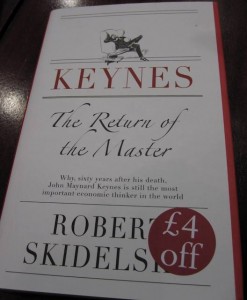It’s nice to be cited. Today, in a speech to the FCC on “Preserving a Free and Open Internet: A Platform for Innovation, Opportunity, and Prosperity”, Julius Genachowski, the Chairman of the Brookings Institution, said this:
Why has the Internet proved to be such a powerful engine for creativity, innovation, and economic growth? A big part of the answer traces back to one key decision by the Internet’s original architects: to make the Internet an open system.
Historian John Naughton describes the Internet as an attempt to answer the following question: How do you design a network that is “future proof” — that can support the applications that today’s inventors have not yet dreamed of? The solution was to devise a network of networks that would not be biased in favor of any particular application. The Internet’s creators didn’t want the network architecture — or any single entity — to pick winners and losers. Because it might pick the wrong ones. Instead, the Internet’s open architecture pushes decision-making and intelligence to the edge of the network — to end users, to the cloud, to businesses of every size and in every sector of the economy, to creators and speakers across the country and around the globe. In the words of Tim Berners-Lee, the Internet is a “blank canvas” — allowing anyone to contribute and to innovate without permission…
It’s an excellent speech. Worth reading in full.

